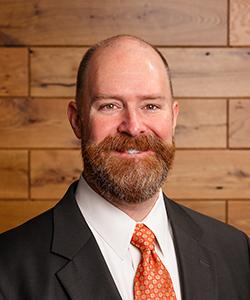Plastic surgery and cosmetic surgery are sometimes used interchangeably, but if you need reconstructive surgery or want an elective cosmetic procedure, it’s important to know how to find the most skilled surgeon.
MU Health Care’s Stephen Colbert, MD, is certified by the American Board of Plastic Surgery and specializes in both plastic and cosmetic surgeries. He explains what you need to know before you select a surgeon.
What is plastic surgery?
Plastic surgery is a broad field that encompasses both cosmetic (aesthetic) procedures and reconstructive procedures. Reconstructive surgery focuses on repairing or reconstructing problems caused by congenital deformities, tumor removals such as cancer, trauma or other reasons. Some other lesser-known plastic surgery procedures include carpal tunnel surgery, microsurgery, rhinoplasty and peripheral nerve surgery.
What is cosmetic surgery?
Cosmetic or aesthetic surgery is what most people think about when they hear the term plastic surgery, and those are procedures done to improve a person’s appearance to help their self-esteem. These are elective procedures, patients are usually healthy before they have the surgery, and insurance does not cover these procedures.
Which cosmetic procedures does insurance cover?
Eyelid surgery and breast-reduction surgery are two cosmetic procedures that insurance may cover if the patient meets certain requirements, but insurance only covers these procedures for functional reasons, not for the change in appearance. It is just coincidence that the patient may get a cosmetic benefit from the procedure as well as a functional benefit. For eyelid surgery, the patient must demonstrate a loss of vision because of excess skin. Women who suffer medical issues because of breast size and weight can qualify for an insurance-covered procedure to reduce the breast size.
What should you know before selecting a surgeon?
You want a doctor who is highly skilled in the procedure you are considering, and you should have a trusting relationship with that physician. I believe one of the best ways to identify a well-trained surgeon is to ask about board certification. If that physician is board-certified by the American Board of Plastic Surgery, you know that doctor has passed rigorous exams and has a better chance of being well-trained.
What about cosmetic surgery overseas?
Patients will be attracted to the idea of leaving the country to have a medical procedure because it is much less expensive. I see patients who have had procedures overseas and come to me after experiencing a poor result. There are a few things to consider before you opt for a procedure overseas. Do you know whether that surgeon is well-trained? How safe is the surgery center? And how easy will it be for you to go back to that doctor if you experience complications? An overseas experience makes the relationship with the physician much more challenging.




